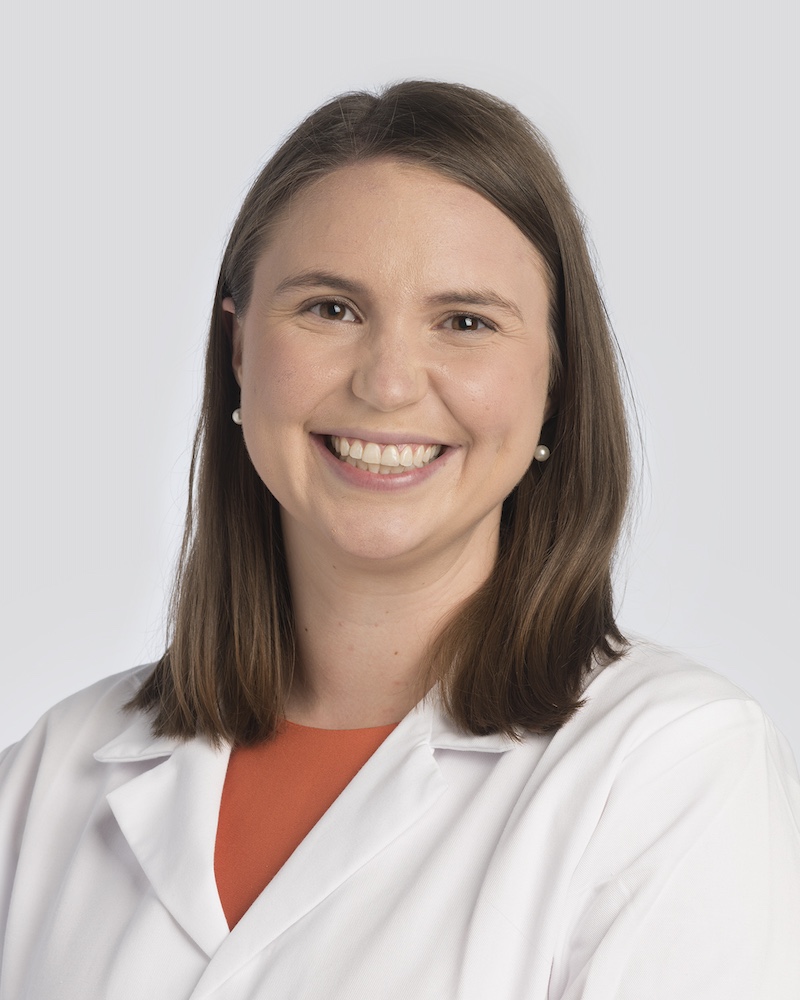Alumni Spotlight on Emma Gargus, MD, PhD
Enjoy the time and intellectual freedom you have in the lab during school. There are few other times in your career where you have so much freedom to explore.
Emma Gargus, MD/PhD
Emma Gargus, MD/PhD, is a CRS alum and a former MSTP student who completed her PhD in Dr. Teresa Woodruff’s lab. She is currently an Obstetrics and Gynecology resident physician at the Cleveland Clinic Foundation.

Thesis mentor: Teresa Woodruff, PhD
Thesis title: “Engineering complex, heterogenous ovarian microenvironments”
What is your connection to the CRS community (mentor and position) and what is your current position?
I was an MSTP student from 2014-2022 and completed my PhD in the Woodruff lab from 2016-2020. In the Woodruff lab, I did a variety of projects with the overall goal of understand the structure and properties of the native ovary in order to learn how to engineer more accurate models of ovarian physiology and disease states. I am currently an Obstetrics and Gynecology resident physician at the Cleveland Clinic Foundation, with an interest in pursuing reproductive endocrinology and infertility fellowship after residency.
Could you describe your current research/studies?
As an OB/GYN resident, I spend most of my time at the hospital or clinic rotating through the many subspecialties housed within OB/GYN, from Labor & Delivery and high-risk OB to gynecologic surgery, gynecology-oncology, complex family planning, urogynecology, and reproductive endocrinology and infertility. Having just completed my first year of residency, I’m now working on finalizing a clinical research project, which will likely be within the field of reproductive endocrinology and infertility.
What aspect(s) of CRS did you find most valuable?
What I loved most about the CRS was the interdisciplinary and collaborative culture. My undergraduate degree was in materials science and engineering and CRS scientists had a long history of collaborating with engineers and brining engineering principles to the study of reproductive science and medicine. Towards the end of my PhD studies, I became involved in a team-based project working on developing an in vitro model of polycystic ovary syndrome (PCOS) using tissue engineering and microfluidics principles. I appreciated getting to learn how to contribute effectively to a large and dynamic team and getting to learn from others from many different backgrounds from medicine, science, engineering, statistics, and even humanities and law.
What has been the most valuable aspect to your training as a reproductive scientist in CRS?
The CRS exposed me to a width depth and breadth of science and engineering. Not only did I personally learn a huge variety of techniques within the Woodruff lab and from our many collaborators, but the weekly Reproductive Research Update exposed me to even more techniques and research methods. All of this exposure has made me a better critical reader of the scientific literature and has helped me to think outside the box when tackling my own research questions. The CRS also gave me ample opportunities to practice presenting and describing my work to a variety of audiences – from fellow scientists and clinicians at the Reproductive Research Updates to high school students at our Oncofertility Saturday Academy.
What would you recommend to junior scientists in order for them succeed in their scientific careers?
Enjoy the time and intellectual freedom you have in the lab during school. There are few other times in your career where you have so much freedom to explore. Be curious – collaborate, learn as many techniques as you can, go to seminar series (if for nothing else but free food), and make friends. In addition to exploring the science, explore the things that help to recharge your battery – hobbies, friends, family, etc. – and invest your time into those pursuits as well.
What do you think will be the next big contribution in the reproductive biology field?
I’m interested in to see how advancements in induced pluripotent stem cells, particularly gametes, and gene editing will improve our understanding of embryogenesis and other aspects of reproductive biology and lead to development of new therapeutics for patients.
Do you have any notable stories from your time in CRS?
I made lots of great friends (including my future husband) and had the privilege to travel lots of places to present my work and represent the lab at various national and international conferences.